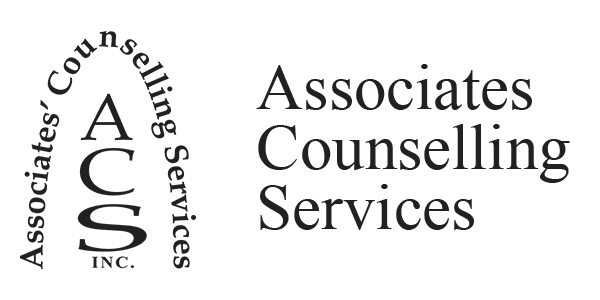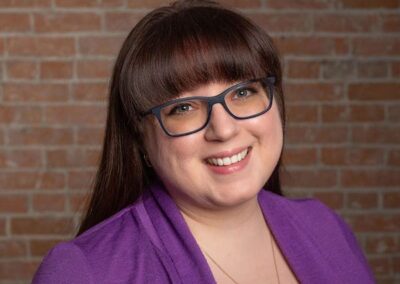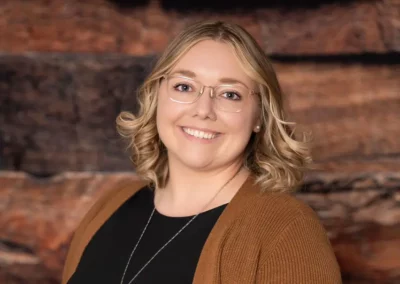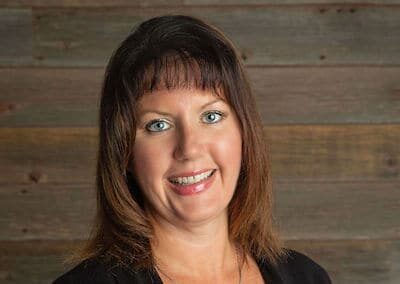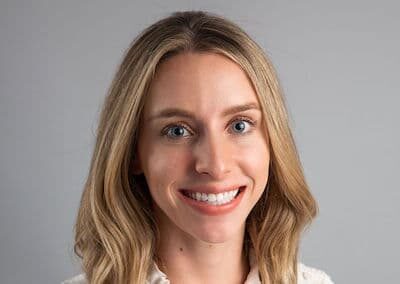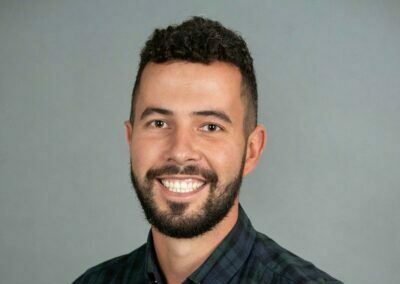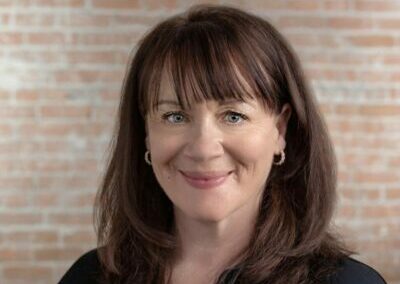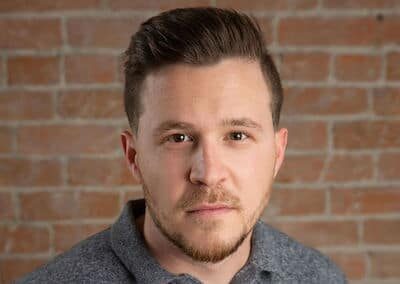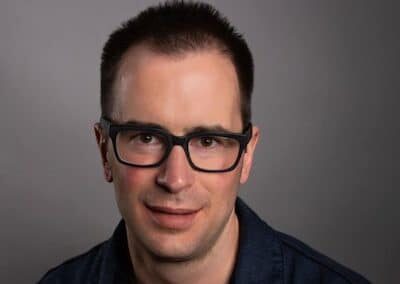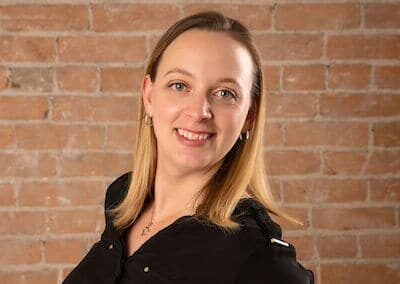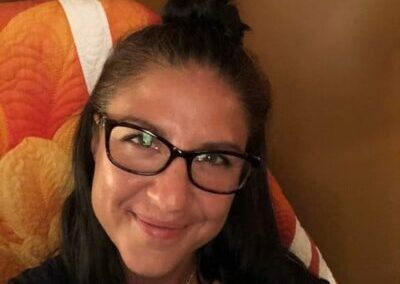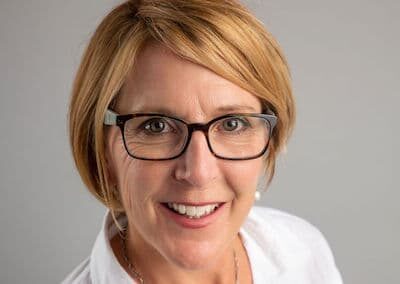Relationship Dynamics
Video Transcript
DENNIS RELOJO-HOWELL
Hi, welcome to the D.R.H. show, where I have wide-ranging conversations with fascinating people. We talk about all things psychology, mental health and wellness. I’m delighted today to be joined by a counsellor from the Associates Counselling Services, Brad Moser. Thanks for joining me.
It’s great to have you here. Brad, could you tell us about your background, your trajectory in life and how you ended up doing what you’re doing.
BRAD MOSER
Absolutely, yeah. I’m from Lethbridge, Alberta, Canada. And I grew up in Medicine Hat, Alberta, which is two hours away from Lethbridge. In Alberta, there is a course that all students take in grade eleven, and it’s called calm C.A.L.M. That class really opened my eyes to psychology and got me interested in psychology because of the instructor. Her name is Nadine Spencer. She taught the class like group counselling. We sat in a circle, and there was confidentiality. And we talked about our deep secrets, and stuff, like that was really cool. And that got me interested in psychology. And then I’ve been pursuing psychology ever since, and I never looked back. Right now, I work in Associates Counselling Services in Lethbridge and private practice. And I’ve been in almost 14 years of counselling experience. I’ve been working nine years as a psychologist, I provide therapy for individuals, and that’s both children, ages seven and up, and adults. I work with couples and families, all different combinations like parents and children, whether they’re married or common law, parents, siblings, parents and their adult kids separated divorced families, that sort of thing. That’s kind of where I’m practicing right now.
DENNIS RELOJO-HOWELL
I understand, in particular, Brad, you’re specializing in relationship dynamics. So if you could just kind of give us a snapshot of what is relationship dynamics?
BRAD MOSER
Absolutely. So my interests in relationship dynamics began in my early studies in psychology. That’s where I was interested in the truth. And I wanted to know the truth. In my first year, I remember learning that truth is subjective. There are many different ways of interpreting events. And in relationships, especially intimate relationships, I find that there can be many other truths. For example, two people can experience the same event and have entirely different perceptions of reality or their subjective truth. And how do couples navigate that? That’s something I’ve always been fascinated with in helping couples. And I find that in therapy, the presenting problem that people bring is often on the surface. It’s things like communication and conflict;
- children not listening to their parents
- children’s anger
- A person has a problem and needs to fix it in the family or the relationship.
And that’s how it presents. But then I find that when you go deeper, you get to the real meat of therapy. And I find that relationship dynamics is one of those meats that we can dig into in counselling and help couples come to a better place. And even have a better relationship than when we started counselling.
DENNIS RELOJO-HOWELL
Now, I suppose that we are involved in a relationship. So we’re kind of like an expert in some way. So why do we need someone to help us navigate our relationship? Why does an expert such as yourself need to be involved in a dynamic relationship?
BRAD MOSER
I don’t think that everybody needs counselling, or in all parts of their lives. It can be helpful for sure. There’s a lot of value to counselling. We all have dynamics in our relationship. I think it becomes the point of when you may want to look into it if the dynamics result in a loss of balance, and it’s creating a lot of conflict in the relationship. That’s where a therapist can help you go deeper and try to identify what those dynamics are and learn how to work on them.
There’s a lot of other resources available. Googling and go on the internet to find information. It doesn’t match when you meet with somebody with experience—a professional with who you can develop a professional relationship. There, you can have the opportunity to explore that within your relationship.
DENNIS RELOJO-HOWELL
In particular, married couples. So why did you focus on a specific area? And is it about married couples, and what are the common challenges that they encounter?
BRAD MOSER
I just wanted to slow down and talk about the dynamics of why I am interested in that, especially with married couples or couples in a relationship—particularly couples who have children together. My definition of dynamics in their relationship is ongoing patterns of behaviour, emotion, and mental processes between people in your relationship. And within each person in that relationship.
I’m going to show a diagram here that I drew, and nobody can see this, okay? I’ll try my best here, so you can see this. We have partner “A” and partner “B.” Two people in a relationship. When we get into a relationship, we bring into it what already exists. Things that we bring to the relationship contribute to the conflict and the dynamics in the relationship. So we each have thoughts. I would put the dots on each partner to show different things that we bring to the relationship. Things that strengthen or weaken it;
- Addictions
- Trauma
- Previous relationships were painful.
- Past Experiences that can get in the way of the relationship.
And then there’s also these two circles and where the two partners intersect in the middle, and we have that squiggly line. That’s where the dynamics take place. When a couple presents in couples counselling, the most common presenting problem is communication. Couples want to work on communicating better, which is a very valid concern that needs fixing. But often, what happens is they present on the surface as communication issues such as;
- listening better
- taking turns to talk
- learning how to take time off
- set boundaries
Then there might be some more profound things that they need to be aware of and learn. It could be about their own traumas that have happened in their life that are getting in the middle of the relationship. The things that happen within ourselves as individuals, but then also within our relationship.
DENNIS RELOJO-HOWELL
Thank you for illustrating assistance you’re offering to your clients. Is there any scenario that stands out from your memory?
BRAD MOSER
The dynamics between parents. Today I wanted to explore the dynamics between parents who are in a relationship. There’s already a lot of research on parents that are divorced or separated. And how they can raise their kids. But with intact relationships, there’s quite a bit of dynamics that can happen and get in the way of the relationship. There are many different types of dynamics, but for couples, the most common is General Dynamics between couples who are parenting together.
The first one is a “pursuer-distancer” dynamic. And this is very common in relationships where one person, when the couple gets into a conflict, who is in the pursuer role may try to resolve or connect or reach the partner. They want to try to fix it with their partner. In contrast, the person in the distancer role may try to protect themselves and their relationship by not engaging in those communications or those connections. They may not want to talk about problems, but that becomes too much. They need to be by themselves in an attempt to smooth things over and maintain a connection.
The thing about that dynamic is that each person influences the other. So when the pursuer pursues, it’s created distance and then the more that the distance grows, the more than the pursuer may pursue.
Another prevalent dynamic between parents is the parent-child dynamic. Where one person may take on the role of the parent, that’s the person who may try to take care of their partner, and they may try to meet their needs or try to nurture them. Whereas a person in the child role may kind of rebel against the person in the parent role. Or they may try to adapt it for them or try to meet their needs. When you see the parent-child dynamic within parents in a relationship, it may seem like the person has four children and is married to their oldest child.
Another dynamic that happens between parents and relationships is that of overcompensation-under-compensation. The overcompensating person may feel like they need to because they need to take care of situations where they feel like they’re the only ones who could do it, and the other person doesn’t know how to do it. They may take up the majority of work with kids and with housework and stuff around the house. In contrast, the under-compensated person may just feel like;
“I don’t know what to do to please her.”
“I’m just going to get out of your way.”
I use “he” and “she” for examples, but I see these averages in counselling. These dynamics can occur within couples of the opposite sex, the same sex, different gender identities that could also be across other races and cultural backgrounds.
But the last kind of dynamic I see a lot of is the parental gatekeeper or gatekepee dynamic. I learned this from Marsha and Kyle Pruett and Phillip, and Carolyn Cowan. The developers of the Supporting Father Involvement program, which I’ve been involved in myself.
The parental gatekeeper-gatekeeper dynamic that happens between parents in a relationship is that the gatekeeper may feel like they’re the only ones who know how to take care of the kid. They know the best way to raise the kids or what they need. They may insist on the other person to parent their way. They may tell the other person how to raise the kids, what to do with them, spend time with them, raise them, etc. These dynamics, the vital thing to know is that they are normal. When they become unbalanced or outside the couple’s window of tolerance, where they feel uncomfortable, it could damage the relationship.
DENNIS RELOJO-HOWELL
In light of the lockdown, would you say that it affected the dynamics of a relationship? I’m bringing this to the audience to highlight that you wrote an article on the PsychReg site about post-traumatic and COVID stress. I wonder if you’ve seen increased conflicts or problems within relationship dynamics due to the lockdown.
BRAD MOSER
The pandemic has created a lot of stress and conflict for all different types of relationships, particularly within intimate relationships. We’re starting to get back to whatever normal is. Since many resources were in place before, such as not seeing family and friends as much and not being able to connect at work because you have to work from home. Things like using the gym or going to restaurants or whatever different resources that people used to use to cope with their relationship. That added stress to the couple. And then the couple didn’t have as many outlets. They had to rely on each other. So what couples did is they not only relied on each other as a relationship, but they also had to rely on them for all other things; friendships and other holes where they’ve previously been able to have relationships with others. Now they had to rely on each other. That created more stress on the relationship. As a result, we’ve seen an increase in conflict. We’ve seen an increase in domestic violence, child abuse, and separation/divorce. On top of that, it’s created a lot of conflict within families. Many children didn’t go to school; they had to stay at home with their parents.
I haven’t mentioned the grief and loss that came from financial stress, loss of jobs, and people dying and not going to funerals. On top of that, they had to look out for the kids, and they had to homeschool their kids while also working and doing everything else. So it just created a lot of stress within families. And so, I saw that within my practice. And now I’m glad to hear that as restrictions here in Alberta are changing. We’re starting to see an increase in people accessing mental health services and therapists, which is fantastic because people are beginning to see the importance of mental health.
DENNIS RELOJO-HOWELL
Here in Britain, we call the 19th of July Freedom Day because this was the day where we no longer needed to wear masks or do social distancing. But for some, hopefully, this would have a positive impact when it comes to relationships. You just gave us a comprehensive overview of the type of dynamics within a relationship. I wondered if you’ve already discussed codependency, or is that another aspect of what you’re doing well.
BRAD MOSER
I define codependency as putting so much time and energy into our loved one’s health needs, wants, and feelings. So much so that we have little or no time and energy for ourselves. That’s where you may start to become addicted to helping your loved one or other people as well, except for ourselves and believing that your loved one is happy that I’m happy. In Canada, there’s this popular notion of “happy wife/happy life”. Some husbands say to themselves or other people. Codependency doesn’t work because we put a lot of our energy and time into other people, particularly our significant other, to make them happy. Well, we’re bound to feel frustrated and exhausted probably, frustrated because we can’t control other people. If we’re trying to make other people happy, they may not be satisfied. They may be upset, they may be sad, which has nothing to do with that. But we still feel like it’s our job. We feel like it’s our responsibility. So we just keep working harder to try to make them happy. But we may even become controlling, to try to control them to make them happy for us to feel happy. Then we feel powerless over our feelings.
Another challenge of codependency is that when you come together as a couple in a relationship, your partner usually falls in love with you. With who you are, your authenticity, your authentic self. But what tends to happen with codependency is we get wrapped up in that, and we lose that, maybe because we come so absorbing the other person. But the important thing is that without a solid you in your relationship, you can risk damaging the relationship if you’re not focusing on yourself before you spend way too much on your partner. It is essential to have a balance and to be focused on your partner, but also yourself.
DENNIS RELOJO-HOWELL
What about codependency within parental relationships?
BRAD MOSER
Within the parental relationship, couples raising kids together are that when dynamics are off-balance, they negatively impact the relationship. Many times it can be driven by codependency. And there are many strategies that we can use to overcome codependency. That’s where seeing a counsellor, individually, one on one, or as a couple, can be helpful. Here are a few suggestions that could help.
- Setting boundaries is critical to telling your partner what’s going to work for you what’s not and being upfront about that.
- Practicing self-care is essential.
- Be your authentic self, and allowing your partner to be their person can be very helpful.
- Let go of the need to control the other person.
DENNIS RELOJO-HOWELL
What about other people? How can they impact the relationship dynamics?
BRAD MOSER
Other people are children, stepchildren, parents, in-laws, extended family, friends, and other lovers in polyamorous relationships. Those other people can magnify or complicate the dynamics that already exist within the couple. They could also add another layer to the dynamic within couples or introduce a new dynamic between parents. And then the person. An example of that is triangulation. Think about a triangle. You have three sides. You have the parent, partner “A,” and partner “B.” They’re in one line. And then the triangulation is when one other person gets involved. It could be a child, a parent, an in-law, and this other person intervenes or enters the conflict. They attempt to ease tensions between the couple. Let’s say parent “A” and parent “B” are in a relationship conflict. Then one partner may feel defeated and go to one of their kids and treat that child as a confidant, counsellor, and friend. It can create a risk for the couple because one outside person enters the conflict. But it could also impact the child’s development because they feel like maybe they can’t be a child. They have this expectation that they have to look after one of their parents.
DENNIS RELOJO-HOWELL
I suppose when you mentioned triangulation because you mentioned someone who’s respected in the community. Would it also involve someone such as the church leader?
BRAD MOSER
That could be other people.
DENNIS RELOJO-HOWELL
Another thing that I want to ask you. As a parent, as a counsellor, what do you think are essential elements that should be considered between a parent and a child regarding relationship dynamics?
BRAD MOSER
I have two wonderful boys, and I’m married. I’m in this situation as well. It is part of the passion. I remember how crucial my role as the dad as a parent became when I had my firstborn. I remember holding him in my arms. And I remember him reaching out to me, and there’s this attachment reflex that happens for babies where they try to grab your finger. Parents know that babies hold onto your finger like that. So you put your finger there, and they grab it. That’s an attachment reflex. They’re trying to reach and feel connected and feel safe and warm. And they’re biologically programmed to do that.
And so, when I was holding his finger, he couldn’t talk at that point, but I could hear him. I could hear him say, “I need you.” The change in my life became so apparent to me, and he just hit me in the face. It’s like, “wow, this is huge”!
I talk about this is because, as we know, it can be challenging. We made this person through our love, and a product of our love is our responsibility. And we feel responsible for this person. It’s easy for dynamics to happen because we’re all imperfect, and we live in an imperfect world. We have imperfect relationships. It’s easy for these dynamics to happen. And when they do happen, it’s not a significant emergency, just awareness of it, and then trying to address it, and some dynamics are getting, so they’re not necessarily bad, but to be aware of them. So, first of all, a big step for parents to be mindful of dynamics is to be aware of it right to see it happening and be aware that this might be happening. And then address it with your partner and talk about it.
I use the 30% rule: each person owns 30% of that problem whenever you couple these in a conflict. Partner “A” and “B” each own 30% part of the deal, and the rest, which is 40%, are things that we cannot control. So other people, kids, COVID, and many different things we can’t control. Trying to own your 30% can be very helpful, very friendly, not blaming your partner. It’s taking responsibility for your 30%. And then also just trying to address your partner’s behaviour. So it’s okay and healthy for parties to talk about their concerns with their partner. Better to address it as their behaviour for things that they’re doing or not doing. According to John Gottman, he talks about the importance of complaining, but not criticizing. Criticizing is when we use words like never, always. When we blame our partners, we may call them names, we may swear at them, and we’re attacking their character and personality. Instead, we want to complain and that we want to talk about their behaviour. When we’re seeing our partner doing or hearing our partner doing and how we feel about it.
You only control yourself, make positive changes, and influence your partner, but you cannot control your partner.
So I want to show more diagrams that I drew here. This illustration is called circles of control. We have three circles here. The biggest circle is what we don’t have control over. That’s a lot of things like COVID, the weather, other people, many different things. And then the smallest circle is what we have control over, which is not very much; it’s just ourselves. We don’t have a lot of power over parts of ourselves—things like our thoughts. We don’t have control over having 30,000 thoughts a day and how many different thoughts we have. We don’t necessarily control our emotions, either. I would argue we can influence our feelings. So if I’m feeling sad, I can’t just snap my fingers and be happy. If I’m unhappy, I can do things to help influence how I feel. That’s the middle circle. We can create influence by controlling ourselves and be a positive influence ourselves. We can affect change in other people, but the focus needs to be on improving ourselves.
DENNIS RELOJO-HOWELL
Thank you for that illustration. It’s easy to think about this and conceptualize, but it’s a bit more challenging in practice. So my question to you is, what makes it tricky? Why is this so hard?
BRAD MOSER
I know myself, within my marriage, it happens. I understand that the couples I work with may not even be aware that it’s happening, and it does happen for sure. And if you get ugly, and sometimes we try to ignore it or avoid it, we don’t want to think about it. But addressing it can go a long way. Being able to talk about your partner respectfully in owning your perception of what might be happening. I talked about the importance of how we all have our interpretations of the world, our subjective realities. So why is this so hard? We all are imperfect. We’re given an imperfect world. And so dynamics do come up. We’re not taught about this stuff in school. I think that what makes it hard is also great because there is a deeper purpose here. Dynamics help us be better people, partners and parents. They help us learn about the delicate balance between loving ourselves and other people.
There’s a quote from Dr. Helena Vissing that parenting is a “nervous system upgrade”. “Parenting provides us with opportunities that can help us learn how to tolerate stress and regulate our emotions when unexpected things happen.”
So yes, it can look hideous, but there are many ways that it can be good. And you are also in an intimate relationship. And being parents can help us learn patience, understanding, compassion, forgiveness, and unconditional love. For those of you who are parents, you can probably connect with this. If you’re not a parent, you can probably just by talking to parents. You may hear people say that it’s very stressful. It’s one of the struggles, stressful things you can do in your life. When couples choose to have a child and be happy parents, it’s one of the most stressful things in their relationship. But at the same time, you hear from many parents saying that it’s more rewarding than you could ever do in your life.
DENNIS RELOJO-HOWELL
What can therapy have in all this?
BRAD MOSER
Whether it’s individual, like one-on-one, or couples, therapy can be beneficial and can be helpful to identify these dynamics that might be playing out. And to do your part, you can only control yourself. Try to make it better. Try to influence positive change and to try to make it work better.
There is a lot of value in individual one-on-one counselling because that’s when you’re meeting with a counsellor who gets to know you, and you get to go deep with his material. Of course, it’s not going to happen quickly. Usually, the way it goes is you develop rapport with this therapist. You develop a professional relationship, get to know yourself, and understand some of your relationships across your life. And they can provide some input, some guidance for you and how to resolve some of these dynamics. Help you learn tools to help overcome some things;
- Like how to communicate better
- How to regulate your emotions better
- How to be
- How to find more joy and happiness in your life
Many benefits can come from therapy in couples and family counselling because you have both people in the room or, in the case of family, all the people in the room. If all individuals in the room are ready and want to work on things, they can help map a lot of these dynamics and work on them. And even if one or two or not all of the people in the room are motivated or wanting to work on it, you can still try to move towards change.
DENNIS RELOJO-HOWELL
Based on your experience as a father and husband, what would you characterize as a healthy relationship? And also, if could you give us a quick, tangible pointer of what can we do to sustain a healthy relationship?
BRAD MOSER
There are things that we can do to keep healthy relationships going. Because dynamics do happen, and they occur in intimate relationships, being aware of them or talking about them can help a lot. And to be mindful of and accept your contributions to the problems in your relationship. It can take a lot of work, yourself, and courage to do that. But that can come a long way in helping focus on what you can do to make your relationship better. Trying to celebrate each other’s individuality is also important. When each partner realizes and expresses their authentic self—and also trying to get away from this romantic comedy notion that your partner completes you or makes you whole. You might remember the movie Jerry Maguire from the ’90s, where I think he said, “you complete me.” And that’s not really how healthy relationships work. Your partner doesn’t complete you. It’s more about you completing yourself and your partner completing themselves and you guys having more of a complete relationship together.
There are also healthy dynamics that can take place too. So this is where it’s not all bad. Both partners, loving each other, loving your relationship, loving yourself, both partners being committed to the longevity of your relationship, both parties pursuing your interests, encouraging each other to do that, to follow each other. As lovers as partners. It is not perfect. There’s no such thing as a perfect couple of such things as a perfect person. There are no soulmates. It’s just about finding people you like and just trying to work hard on making your relationship better. And to also think and talk positively about each other. And if it’s a lot of negatives, just trying to understand what’s behind all that native—then trying to get over the negative and then into more positives eventually. Sometimes, just by finding somebody you trust, such as a therapist or family friend, to be able to process some of this stuff, or talk about what’s bothering you, or with your partner as well.
Also, couples with healthy relationships focus on the healthy part of the relationship on healthy dynamics. They are having an evolving and vigorous pursuit of their emotional, physical and sexual intimacy. Because among all relationships, that’s what makes an intimate couple relationship special. Have a sense of humour. That you guys can share, that’s respectful, where both parties can laugh at themselves, their partner and their relationship, without anyone feeling hurt.
DENNIS RELOJO-HOWELL
What about the role of sex within the relationship? Have you helped couples navigate that? Sometimes they say, lack of sex could affect a relationship? Have you dealt with couples struggling with this?
BRAD MOSER
I’m not a sex therapist. A sex therapist is somebody you could see to address specifically your sexual relationship. I’m a couples therapist. Sex often does come up in therapy, because a lot of times when you see people in treatment, often the things that they don’t feel comfortable talking about with other people, such as sex, and some other things come up. I’ve helped a lot of couples with sexual parts of their relationship. I talked about the different dynamics and relationships, and there are quite a few sexual dynamics that can also occur within a couple. So one of the prevalent sexual dynamics is the high desire-low desire dynamic, where one person has a stronger desire for sex, and the other person may have a lower desire. It’s about finding a good place to talk about their needs, wants, and feelings. Within their relationship, and try to do what they can to make it work. And also maybe a bit of compromising or trying to be open with each other about what they need. And they were then aware of how to make it work better at the moment as well. When you are intimate with each other, it can be helpful to see a therapist when sex is presenting a problem in relationships.
DENNIS RELOJO-HOWELL
Parts of your job will have inspired many people who will be watching this interview. If anyone wants to become a couple’s counsellor or relationship expert, could you recommend good resources? Could you recommend some good organizations to be part of, or is there any T.E.D talk that you think would kind of inspire them to follow your path?
BRAD MOSER
I highly recommend John Garmin and Julie Garmin. They’ve researched 1000s of couples over the years. And they found the patterns in couples that make their relationship stronger and make them stay together. And then, they also found the habits that make relationships break up or go through separation divorce. There are excellent books available out there. The most popular are seven principles for making marriage work. As I mentioned, I’ve learned their method of couples therapy.
I’d also recommend Esther Pearls. She has a lot of good research on how couples can work with that, particularly with intimate relationships, also within couples who’ve experienced infidelity in the relationship. She has a lot of good YouTube videos, a lot of good resources and books.
I’d also recommend Sue Johnson and some of her research on emotions. Emotions within couples; emotion-focused therapy. A lot of good stuff there. There are a few other good ones, but I would recommend those three the most.
DENNIS RELOJO-HOWELL
If people want to reach out to you, what platforms can they get in touch with you?
BRAD MOSER
I work at Associate Counselling Services in Lethbridge, Alberta, Canada. I am licensed to practice anywhere in Alberta virtually. So if you are in the Lethbridge area, you can come and see me face to face. We can also do virtual anywhere within Alberta, Canada. You can also follow me, I do have a radio show that I do once per month, and it’s called “Real Dads. You can search JESS FM on Facebook.
For socials, you can find me on LinkedIn, Instagram, Facebook and Twitter.

Brad Moser, Registered Psychologist
Brad Moser has over 12 years of experience providing therapy for children and teens, adults, couples, and families. His areas of practice include anger, anxiety, bereavement, childhood and family of origin concerns, depression, identity concerns, marital/relationship distress, men’s and dad’s issues, parenting, self-esteem, separation/divorce, stress, and suicidal ideation. Brad is now accepting new clients and is providing a sliding scale for those who cannot afford the normal rate.
Find Your Counsellor
We are proud to offer a diverse and experienced team of counsellors. Whether you require the services of a psychologist or social worker, we have someone ready to help.
